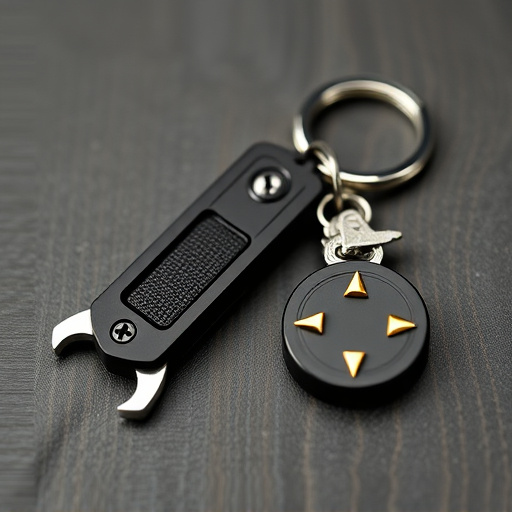The legal status of Kubotan keychain defense tools varies widely across US states, with regulations on size, capacity, purpose, and carry conditions. Some states offer broader interpretations allowing them for personal protection if used reasonably, while others have stringent requirements including age restrictions and training mandates. Understanding these classifications and adhering to state guidelines is crucial for legal carry of self-defense keychains, known as the "best Kubotan keychain defense moves," ensuring both effectiveness and legality in personal safety scenarios.
“Unraveling the legal landscape of defensive keychains, this comprehensive guide delves into the varying state regulations surrounding Kubotan keychains. With a focus on self-defense, we explore the key factors determining legality—size, functionality, and intended use—across diverse states.
Learn about the best practices for carrying your keychain legally, including storage tips and understanding local laws. Discover effective self-defense moves using kubotans, offering real-life protection strategies. Master optimal techniques through training recommendations, ensuring you’re prepared with this compact self-defense tool.”
- Understanding Kubotan Keychain Legalities Across States
- – Overview of state-by-state laws regarding self-defense keychains
- – Key factors determining legality: size, functionality, and intended use
Understanding Kubotan Keychain Legalities Across States
The legal status of a Kubotan keychain defense—a small, multi-purpose tool with various functions, including self-defense capabilities—varies across different states in the U.S. Understanding these variations is crucial for individuals looking to legally carry such tools for personal safety. Each state has its own set of regulations and laws governing self-defense weapons, which can include restrictions on size, capacity, and purpose. For instance, some states allow concealed carry of self-defense tools only with a permit, while others might have specific provisions for personal defense items.
When it comes to the Kubotan keychain, states may classify them as defensive gadgets or weapons, leading to differing legal treatments. Knowing the best Kubotan keychain defense moves involves understanding these classifications and adhering to state-mandated guidelines. Some states offer broader interpretations, considering such keychains as acceptable for personal protection if used in a reasonable manner to deter or repel an attack. However, other states may have stringent requirements, including age restrictions, training mandates, and specific circumstances under which their use is permissible.
– Overview of state-by-state laws regarding self-defense keychains
In the United States, the legal framework surrounding self-defense keychains varies significantly from state to state. These small, often tactical devices designed for personal protection, commonly known as Kubotans, are subject to distinct regulations that dictate who can carry them and under what circumstances. Some states have relatively lenient laws allowing open or concealed carry with minimal restrictions, while others enforce strict guidelines, including specific licensing requirements and limited use cases.
Understanding the best kubotan keychain defense moves requires a grasp of these state-by-state laws. Keychain self-defense tools are often categorized as weapons, leading to varying levels of legal protection for their owners. States like Texas and Florida generally favor the right to carry for personal safety, while more conservative or heavily regulated states may have stringent rules regarding their use, especially in public places. Knowing your rights and responsibilities is crucial when considering the best kubotan keychain defense moves, ensuring compliance with local laws while maximizing your ability to protect yourself.
– Key factors determining legality: size, functionality, and intended use
When it comes to legal defensive keychain carry, understanding key factors like size, functionality, and intended use is paramount. Each state has its own set of regulations dictating what constitutes legal self-defense tools, with many focusing on these three aspects. The size of your keychain defense tool should be compact and easily concealable, often no larger than a pocket knife or similar object allowed under local laws. Functionality refers to the tool’s design and effectiveness for defensive purposes; it must serve as a viable deterrent or means of protection against an attack. Lastly, the intended use is crucial; these tools are designed for self-defense scenarios, not for other purposes like opening packages or cutting rope.
Mastering the best Kubotan keychain defense moves requires understanding these guidelines and choosing equipment that aligns with them. A well-selected, legal defensive keychain enhances personal safety without crossing into illegal territory. Always stay informed about local laws to ensure your self-defense tools are not only effective but also compliant.
When it comes to self-defense keychains like the Kubotan, understanding the legal framework in your state is paramount. Each jurisdiction has its own set of rules regarding the legality and permissible uses of these defensive tools. The key factors, including size, functionality, and intended use, play a significant role in determining whether you can legally carry a Kubotan keychain for self-defense. To ensure you’re always prepared with the best kubotan keychain defense moves, stay informed about your state’s specific guidelines and prioritize safety above all else.
